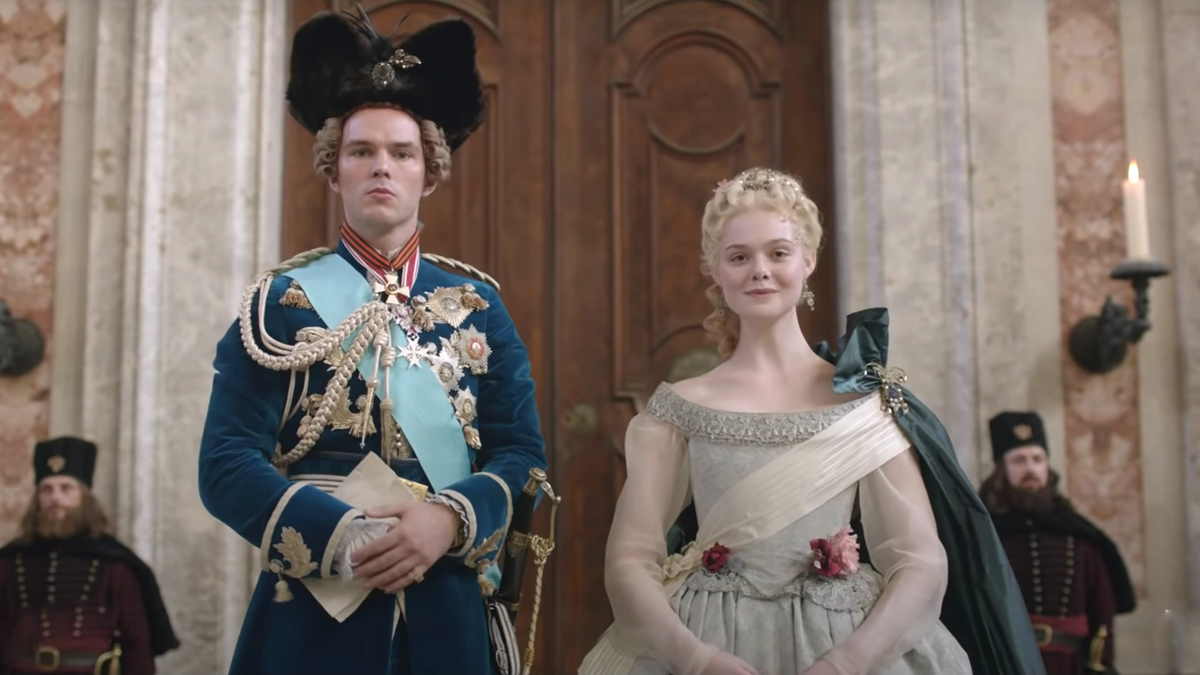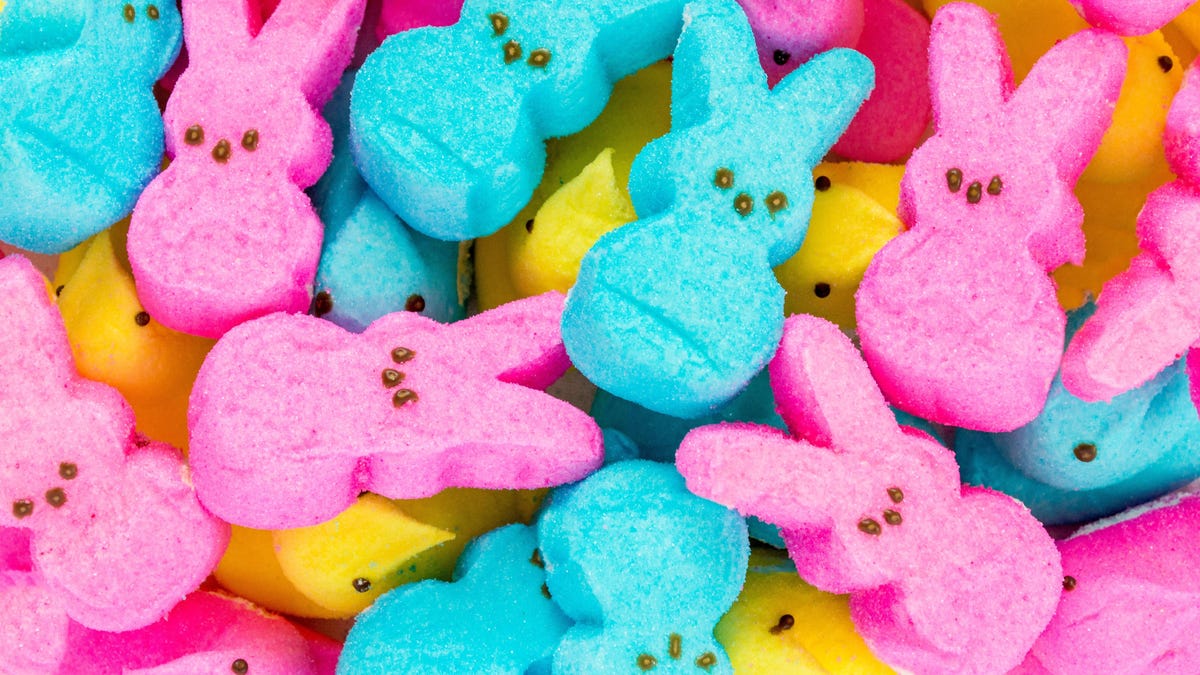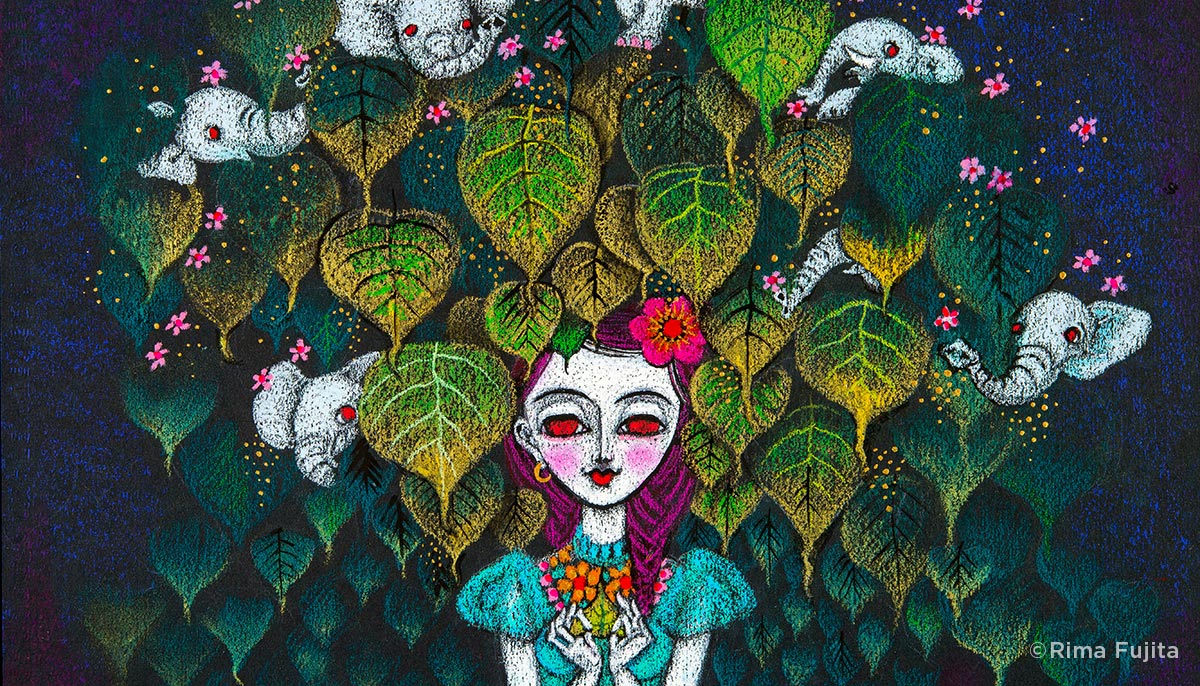20 Hulu Originals You Probably Aren't Watching But Definitely Should Be
There’s a good chance that you’re already familiar with Hulu’s buzziest shows: Only Murders in the Building, The Bear, and The Handmaid’s Tale among them. Those are all good shows—great even!—but there are others that are just as good,...

There’s a good chance that you’re already familiar with Hulu’s buzziest shows: Only Murders in the Building, The Bear, and The Handmaid’s Tale among them. Those are all good shows—great even!—but there are others that are just as good, and occasionally better.
Like Netflix and Max, Hulu has been developing its own original (and co-produced) shows since 2012, building a library that goes well beyond just repackaged shows from the broadcast networks.
Here are some of Hulu’s best shows that you might not have binged yet. Share your own faves in the comments.
Reservation Dogs (2021 – , renewed for third and final season)
Co-creator (with Sterlin Harjo) Taika Waititi has a hand in three of the best shows on TV right now: What We Do in the Shadows (which also streams on Hulu), Our Flag Means Death (on Max), and this one. Reservation Dogs gets a lot of credit for its North American Indigenous representation (characters, cast, and behind-the-scenes), and deservedly so, given the lack thereof pretty much everywhere else on television. But it’s also a great show, period—a true dramedy that manages to bring both solid laughs and moments of genuine heartbreak. It deals with issues and emotions common to rural teenagers who dream of going elsewhere, yet specific to these Oklahoma Rez kids. The second season was even better than the first, and the third season is set to premiere in August.
Life & Beth (2022 – , renewed for a second season)
Amy Schumer returned to episodic TV with Life & Beth, a vaguely autobiographical sitcom (comedy-drama, really, with some romantic comedy thrown in for good measure) in which a frustrated wine rep faces a tragedy that sees her reconnecting with her Long Island childhood. The show’s blend of tones don’t always go down easy, but Schumer gives a solid, nuanced performance (playing a variation of herself), and the show excels in moments of raw, sometimes brutal emotion.
PEN15 (2019 – 2021, two seasons)
It takes a minute to get used to the show’s conceit/gimmick: Thirty-something creators/comedians Maya Erskine and Anna Konkle play young teenagers among a cast of actual 13-ish-year-olds. It’s weird, but Erskine and Konkle are so good, and the show so committed to the bit, that after a while, you just about forget that it’s even a thing. What’s left is an effective and funny cringe comedy that accurately recreates the pain of 7th grade with a surprising amount of heart. Though cut short after only two seasons, the show’s still very much worth the trip, and ends on a relatively satisfying note.
High Fidelity (2020, one season)
It’s easy to compare it to the 2000 John Cusack movie, but keep in mind that this is actually the third major adaptation of Nick Hornby’s 1995 novel High Fidelity—so it’s perhaps less of a remake situation than a burgeoning, generational thing. Maybe idiosyncratic music nerds of the future will get their own version, where everyone, I don’t know, shares a Spotify login? Anyway, here, Zoë Kravitz takes on the gender-flipped lead role of Rob, a biracial, bisexual record-store owner with a checkered romantic history and a compulsive need to make ranked lists, both of music and her past relationships. It can occasionally be tough to buy into effortlessly cool Kravitz’s awkwardness as a character, but otherwise the show successfully updates the beats of the book, film, and musical. The surprise cancelation after one season was a tragedy.
Future Man (2017 – 2020, three seasons)
The Last Starfighter is a fairly specific target for parody, and one that only the elderly are likely to immediately pick up on, but Future Man has a lot of fun with the idea of a video game that’s actually a test given by soldiers from the future looking for a hero. The idea here is that it turns out gamer skillz don’t necessarily, or even remotely, dovetail with the Terminator-style soldier stuff that janitor Josh Futterman’s new friends are looking for. The soldiers first appear to Josh while he’s jerking off to a game character—to give you an idea of the style of comedy at play here—but the series displays real affection for ‘80s horror and sci-fi in general, and it makes for a pretty fun blend of styles if any of that’s your thing.
Mrs. America (2020, miniseries)
This has all happened before, and it will all happen again. Though fictionalized, Mrs. America dramatizes the ‘70s-era fight over the Equal Rights Amendment. Cate Blanchett plays evil activist Phyllis Schlafly, who lead the fight against the (once) broadly popular proposed amendment, weaponizing the ERA by tying it to radical and pro-choice feminists, homosexuals, desegregationists, and other hated groups. She was at the forefront of a broad conservative cultural shift, and it’s not a bad time to take a close look at the people who made basic equality sound radical. This is one helluva supporting cast as well, including Blanchett, Rose Byrne, Uzo Aduba, and Elizabeth Banks.
The Great (2020 – , three seasons so far)
Catherine the Great has been having a bit of a moment for the past couple of years, kicked off by that high-profile HBO miniseries starring Helen Mirren. This is not that, with the opening credits offering up an “occasionally true story.” So no real history lessons here, but a legitimately funny political satire, and of costume dramas in general, from the guy who co-wrote The Favourite, and starring everyone’s favourite Fanning alongside Mad Max: Fury Road’s Nicholas Hoult. The show has only been getting zanier (and more removed from fact) as it goes; let’s hope a fourth season renewal is in the cards.
Shrill (2019 – 2021, three seasons)
Based on Lindy West’s memoir Shrill: Notes from a Loud Woman, this comedy-drama stars SNL’s Aidy Bryant as Annie, the unapologetically fat heroine. Annie (and the show) make no bones about using the f-word, insisting there’s no stigma in being fat. Annie’s just not interested in changing her body, though the first couple of episodes make clear that there’s plenty of other stuff the journalist is working on. Annie is an impressively funny and fully realized character, and there’s a lot of joy to be had in watching her overcome people’s perceptions of her over the course of the series.
Behind the Mask (2013 – 2015, two seasons)
Docs about offbeat characters are often either uniquely fascinating or utterly insufferable—luckily Behind the Mask is much more the former. Over the course of two seasons, the series documents the lives of the ubiquitous but unsung heroes of sports: the costumed mascots. Starring characters with names like Rooty the Cedar Tree, Bango the Buck, and Tux the Penguin, the show brings a bit of humanity to people who spend much of their careers hidden beneath giant furry heads, and earned Hulu it’s first-ever Emmy nomination back in 2014.
Ramy (2019 –, three seasons so far )
Just when you feel like we’ve got enough shows about twenty-somethings struggling to grow up, Ramy comes along. The comedy-drama brings something unique to the form by leaning into the faith of its lead, played by comedian/creator Ramy Youssef, rather than making it incidental: he’s a progressive Muslim-American from a blended Jersey neighborhood who struggles, genuinely, with where to set the boundary between traditional values and modern life. Season two added two-time Oscar winner Mahershala Ali to the cast, and season three dropped last fall. Though there’s no official word on season four, Youssef says if it happens, it will be the series’ last.
Castle Rock (2018 – 2019, two seasons)
It’s hard to imagine a J. J. Abrams production based on various Stephen King’s books could possibly have escaped anyone’s attention, but the fact that this show was cancelled after only two (excellent) seasons suggests it was a victime of Peak TV more than anything else. The promotion leaned too hard, I think, on King easter eggs without ever making it clear that there were actual stories here, told with real dramatic heft—the first season’s “The Queen,” told from the unstable perspective of a character with worsening dementia, was one of the best things on television that year. The cast across the two seasons (each with a separate storyline) is really stellar: André Holland, Bill Skarsgård, Sissy Spacek, Lizzy Caplan, to name but a few. There’s plenty of stuff for King fans to sink their teeth into, but it all works just fine on its own.
Dimension 404 (2017, one season)
Perhaps meant to be Hulu’s answer to Black Mirror, Dimension 404 never achieved quite the same level of popularity. Though similarly focused on modern technology, this sci-fi anthology is significantly lighter in tone, which actually kinda works given that life in the real world is heavy enough right now, thank you very much. It’s got plenty of Twilight Zone-esque twists, celebrity guest stars (Patton Oswalt, who appears in the second episode, representing the median level of star-power). It’s also narrated by Mark Hamill: always a plus.
Into the Dark (2018 – 2021, two seasons)
OK, on this is sometimes marketed more like a collection of short-ish movies, but it’s technically an anthology series, so that’s what we’re going to call it—and there are small narrative threads that run through many of the episodes, for the benefit of attentive horror fans. There’s never been, and likely never will be, a horror anthology that isn’t a bit of a mixed bag, but that’s somehow a virtue here, in that different episodes represent different genres. Some are psychological thrillers, some are splatter, some social satire, and a couple star a giant furry named Pooka. They’re all entertaining and professionally produced, and the standout episodes are really great.
Looking for Alaska (2019, miniseries)
Author John Green is most famous for a particularly poignant brand of teen drama (his most successful work being the novel and subsequent film adaptation The Fault in Our Stars). This miniseries, from Green’s semi-autobiographical debut novel, features a death-obsessed (what else?) kid who moves to Alabama to attend a boarding school, with enlightenment and tragedy following in sequel measure. As with Green’s novels, the material transcends the obvious emo tropes, and the miniseries was received well by newcomers as well as fans of the book.
Welcome to Chippendales (2022 – 2023, miniseries)
The true story of Indian immigrant Steve Banerjee (played here by Kumail Nanjiani) is wildly dramatic, and juicy, but not always in the ways you might expect. Chronicling Banerjee’s rise to fortune as the founder of the soon-to-be-iconic male strip joint, the origins of Chippendales is a story in itself, but its creator’s fall is even more wild, propelling the miniseries into true crime territory: Less than a decade after the founding of his empire, Banerjee threw it away when he decided that the only way to grow the business involved murder. Murray Bartlett, Annaleigh Ashford, Juliette Lewis, and Dan Stevens also appear.
M.O.D.O.K. (2021, 0ne season)
The title character (the Mental Organism Designed Only for Killing) made his life-action debut in Ant-Man and The Wasp: Quantumania, but this very goofy (and short-lived) stop-motion animated series from a couple of years ago does a bit better by the Marvel villain. Patton Oswalt stars as the floating robot head and former leader of a global criminal organization who finds himself at a crossroads as he approaches mid-life, now struggling to balance his wish for world conquest with a family life in suburban New Jersey.
Harlots (2017 – 2019, three seasons)
Harlots takes the historical costume drama in entirely unique directions, and deserved more attention than it got during its three-season run. Its women aren’t dressed in fancy dresses because they’re royalty, but because they’re high-end sex workers (if the title didn’t make clear) in Georgian England. When Margaret Wells moves her brothel to more upscale Soho, she comes into direct competition with her own former madame, who runs a high-end establishment in the same neighborhood. It’s got more sex and moves at a faster pace than more traditional period pieces, and the chess game between rival houses (as they both fight the male-dominated law enforcement establishment) makes for some juicy entertainment.
Difficult People (2015 – 2017, three seasons)
Three seasons was probably about right for a show about such undeniably terrible people, but it’s all very funny in a Seinfeld-to-the-10th-power kinda way. Julie Klausner (also the creator) and Billy Eichner play two aspiring comedians who have absolutely no idea how myopic and self-destructive they are. That style of comedy isn’t for everyone, but it’s great if you like your laughs more on the evil side. Amy Poehler is one of the producers.
Normal People (2020, miniseries)
This Irish import follows the 2018 bestselling novel of the same name from Sally Rooney, who also wrote the screenplay. There’s no real high-concept plot here; the show follows the years-long story of a complicated relationship between Marianne (Daisy Edgar-Jones) and Connell (Paul Mescal), who are a mismatched pair from their start in an Irish secondary school: his mother works for her mother as a housekeeper, but he’s the more popular of the two. The series spends most of its time with the two of them, offering an unusually sharp look at a fascinating, engaging relationship. And while it isn’t the main selling point, it’s worth noting that the sex scenes are both more graphic than a lot of what’s on TV, but also more mature and realistic—an impressive feat in itself.
UnPrisoned (2023 – , waiting for word on season two)
The always-great Kerry Washington plays Paige Alexander, a therapist who, naturally, has issues of her own that she needs to work on. Her life gets infinitely more complicated when her father Edwin (Delroy Lindo) moves in with her and her teenaged son following a long prison sentence. Her need for order is upended, while her father’s charismatic exterior conceals uncertainty about his new life. Creator Tracy McMillan based the comedy, in part, on her own experiences, and the result is a knowing, but refreshingly upbeat, take on life after prison. Hopefully the strong reviews for the first season mean the show will continue.

 ShanonG
ShanonG 
































